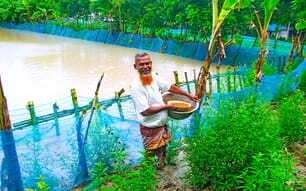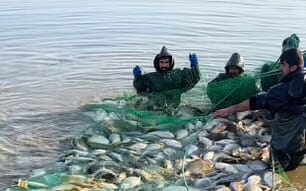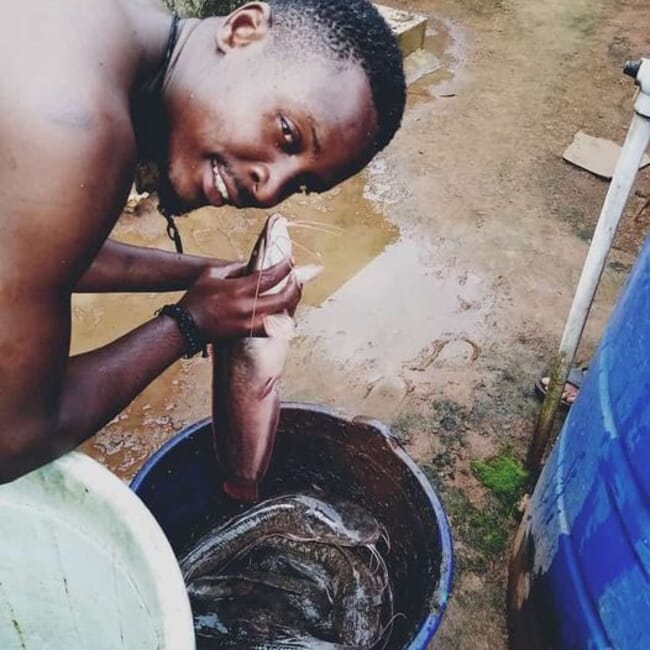
How long have you been farming for?
I started in aquaculture by doing various internships in Nigeria and abroad, where I learned to manage a farm by myself. Nine years ago I started DieuMerci farm. However, I am still learning, I guess in farming we never stop learning.
What size is your farm and what species do you produce?
DieuMerci Farm is around 1,800 m2
and we run it with six people. We produce 120,000 fingerlings and 2 tonnes of market sized catfish per year.
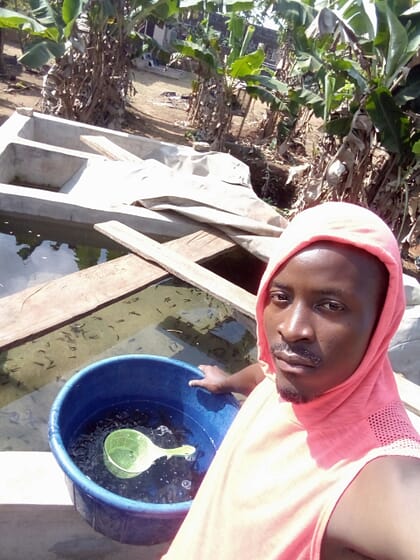
We culture different species of catfish; African sharptooth catfish (Clarias gariepinus) and African catfish (Heterobranchus bidorsalis and H. longfilis). We also culture hybrids, crossing clarias and heterobranchus. The hybrids are stronger and grow larger.
The life cycle of hybrids is around five to six months. We harvest a proportion after 3 months, when they are below 400 g, for smoking. The rest are grown to a minimum of 1.2 kg and sold fresh or smoked.
What sort of production system do you operate?
We use runways for the broodstock and concrete ponds for the hatchery and nursery, which operate on a flow-through system. For grow-out we use concrete tanks and tanks made of a wooden frame with tarpaulin linings.

Why did you decide to embark on a career in aquaculture?
I was in a period where I was discovering myself and trying to find a way to be useful. I visited a friend, whose father had a fish pond and was intrigued. I started researching aquaculture and found an internship at Songhai Centre in Benin. Here my passion for the sector grew – the sustainability aspect appealed to me in particular.
What is your favourite part of being a fish farmer?
I enjoy the hatchery process and taking care of the fry and fingerlings in the nursery. But, most of all, I love to teach the next generation about fish farming. I teach programmes in church, children during holidays and youth programmes, and I open up the farm for visitors and host trainings. Through these activities, I have managed to motivated people to go into aquaculture as a second source of income.
What’s your biggest worry at work?
Apart from safety at work, I am worried about the future of fish farming, since in my country the younger generation do not see aquaculture as a good career path to choose. People tend to look down on farmers. However, once I have engaged with them and explain what I do and why, they feel enlightened.
What’s your greatest achievement to date?
Passing on my knowledge and passion for aquaculture to other people and seeing it change their life for the better has been my greatest accomplishment. In one of my hatchery classes, I taught a woman who had recently lost her job and husband. She went on to learn how to smoke and dry fish and she is now earning a good living from this business.
What would you like to improve on your farm?
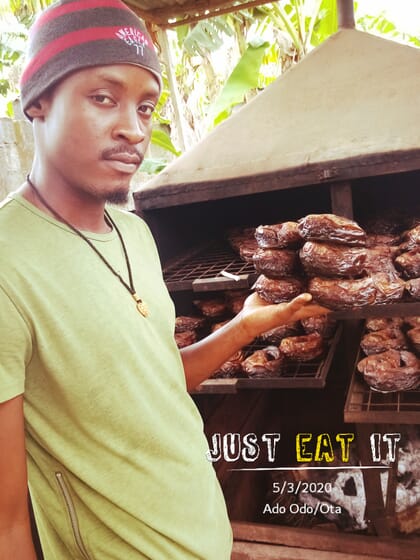
I would like to have a high-quality smoking kiln that enables smoking of catfish to international standards. In my opinion, catfish taste best when smoked.
How do you see your future in fish farming?
I would like to continue my education in agricultural economics and work on bigger projects in aquaculture such as an RAS project. I also wish to give back to the community, as extension services are currently lacking. I am also planning to set up another farm in the southeast of Nigeria. It is however still in the startup phase and I am identifying stakeholders now.
What’s your favourite seafood dish?
My absolute favorite dish is catfish pepper soup. I would recommend everyone to taste it since I cannot explain the feeling I have when I eat it. I clean the catfish well with hot water and salt or lime. Then I cut it in pieces and boil it. I add local spices and yam. It is served hot with a side of rice or cassava starch. Bon appetite!


